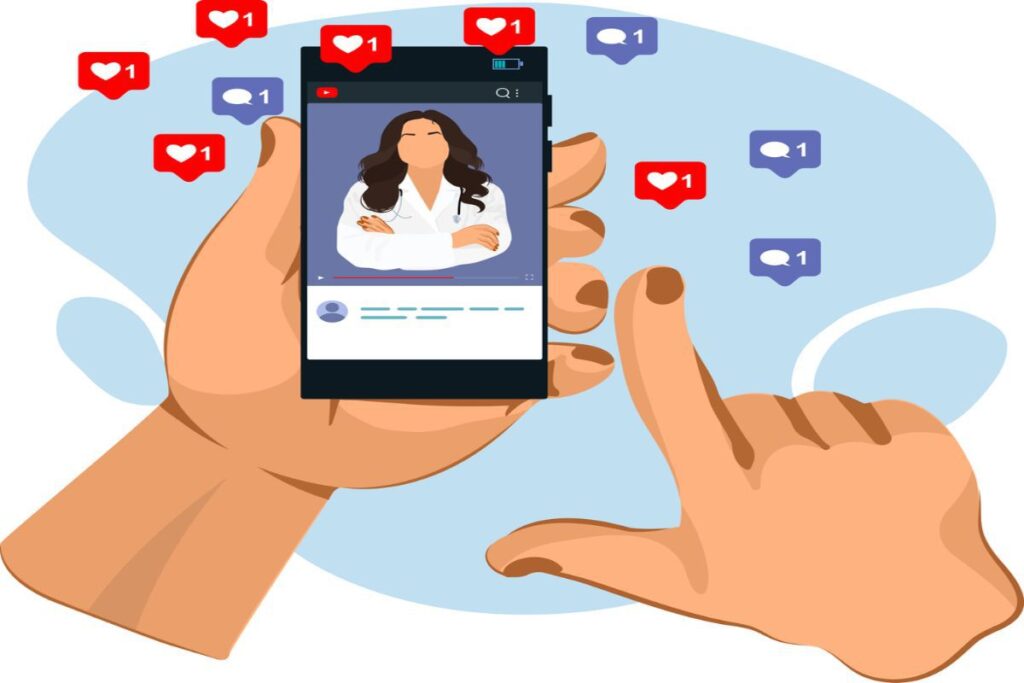Various scenarios can lead to medical professionals facing disciplinary proceedings before their respective licensing boards and agencies. Nowadays, most professionals use some social media platform, whether for business or pleasure, including medical professionals. However, when using social media, medical professionals must be aware of and abide by the laws that govern their profession.
An experienced medical license defense lawyer can represent your interests in any disciplinary proceedings regarding alleged violations of the Medical Practice Act and other applicable rules and laws. We can review your case, explain your potential options, and work to achieve a reasonable solution with the Texas Medical Board (TMB) to reach a mutually acceptable resolution.
Social Media Posts and Advertising
While some licensing agencies have issued policies or position statements that expressly address social media concerns, to date, the TMB has not done so. Nonetheless, as physicians, other medical professionals, and medical practices routinely use social media for advertising, serving, and communicating with patients, they must not run afoul of applicable state and federal laws.
For instance, 22 Tex. Admin. Code § 190.8(2) prohibits “unprofessional and dishonorable conduct that is likely to deceive, defraud, or injure the public within the meaning of the Texas Medical Practice Act” (“the Act”). More specifically, under § 190.8(2)(I), the prohibited unprofessional and dishonorable conduct includes “using false, misleading, or deceptive advertising.” The Act also prohibits physicians from advertising professional superiority of the performance of professional service in a superior manner if that advertising is not readily subject to verification.
All types of oral and written advertising fall within this provision, including advertising and posting on social media accounts and platforms. Therefore, medical professionals must comply with all advertising rules that govern their profession when using social media. Failure to comply with these rules can result in discipline by two separate entities. The TMB enforces the Texas Medical Practice Act. On the other hand, the Texas Attorney General enforces violations of the rules of the Health Professions Council, which is a state agency with representatives from 13 health licensing agencies and the TMB.
Social Media and Patient Confidentiality
Under § 190.8(2)(N), “failing to maintain the confidentiality of a patient” also constitutes unprofessional and dishonorable conduct that is likely to deceive, defraud, or injure the public within the meaning of the Act. Tex. Occ. Code § 159.002 also outlines the responsibilities of physicians when it comes to patient confidentiality.
Violating these laws, depending on the severity of the situation, could result in reprimands, administrative penalties, and license suspensions, some of which may be probated or revocations. For instance, under § 190.14(9), the sanctions for a breach of confidentiality under § 190.8(2)(N) can range from a remedial plan that provides for the completion of eight hours of risk management continuing medical education (CME), including HIPAA, and a $500 administration fee to an Agreed Order or public reprimand, completion of CME hours in risk management and HIPAA, a $3,000 fine per occurrence, and retaking the jurisprudence (JP) exam.
Furthermore, the Health Insurance Portability and Accountability Act (HIPAA), a federal law, and the Texas Medical Records Privacy Act (TMRPA), a state law, both operate to protect the personal health information (PHI) of patients. Violating these laws can result in independent sanctions in addition to those that medical professionals might face from their licensing boards.
Social Media and Posts Directed Toward Specific Patients
The Act’s definition of unprofessional and dishonorable conduct under § 190.8(2)(K) is as follows: “behaving in an abusive or assaultive manner toward a patient or the patient’s family or representatives that interferes with patient care or could be reasonably expected to adversely impact the quality of care rendered to a patient.” Likewise, § 190.8(2)(P) prohibits “behaving in a disruptive manner toward licensees, hospital personnel, other medical personnel, patients, family members or others that interferes with patient care or could be reasonably expected to adversely impact the quality of care rendered to a patient.”
Individuals often use their personal social media pages to complain about others, including those they encounter at their workplaces and colleagues. As a result, it is not unheard of for a doctor or other medical professional to use their personal social media page to air their grievances about a patient, the patient’s family, or another medical professional. Even if they do not specifically identify the parties involved, social media posts that are disparaging, discriminatory, or abusive can constitute prohibited unprofessional and dishonorable conduct under the Act. Therefore, these types of social media posts also could result in disciplinary action.
Click to contact our professional license defense lawyers today
Get Assistance Defending Your Texas Medical License Today
Be sure to get legal assistance if you face disciplinary action against your medical license, whether based on social media usage or another reason. Contact a Texas medical license defense attorney immediately if you receive or anticipate receiving notice of disciplinary proceedings.
Call or text (512) 476-5757 or complete a Case Evaluation form






